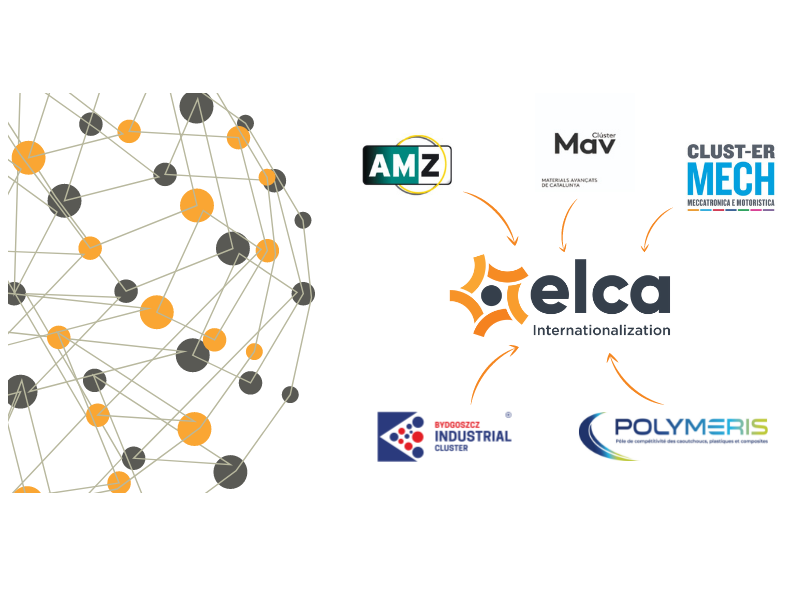The summary of the second part of the report: Partnership competences is now available

The second task of the report D.1.1 was to identify and analyse the core competences on lightweight materials and technologies of the ELCA COSME consortium. This analysis was extremely useful to be aware of the capacities as a partnership and to make sure that those are aligned with the opportunities identified on the previous part.
To identify the core competences of each of the five clusters participating on the project, Cluster MAV, in collaboration with the rest of the partners, designed a questionnaire structured in two main parts:
- The first one was about lightweight materials and industries. This part allows the consortium to identify what are the main capacities on lightweight materials for each segment: mobility (aeronautic, automotive, rail and maritime), health care, energy, industry, and building.
- The second one was about lightweight materials and technologies. This part allows the consortium to detect what are the main competences and the main challenges or difficulties to implement the lightweight materials for each step of the value chain: materials (availability of raw materials, price, materials, functionalization), industrial manufacturing (scale up, assembly & joining parts, materials functionalization, separation, recycling and revalorization) investment, formation and skills, policies or / and legal restrictions.
After compelling the data from the five clusters participating in the project (104 SMEs members were considered on the survey) there has been concluded that in terms of lightweight materials, the consortium develops and manufactures more intensively polymers (including engineering polymers and foamed polymers), polymer matrix composites (including continuous and discontinuous fibres) and metal alloys (mainly aluminium alloys, titanium alloys and high strength steel). Regarding the targeted sectors, the consortium has more incidence on mobility, industry, and energy. On the mobility sector, the main expertise is focused on aeronautics and automotive and rail.
The ELCA consortium have advanced competences on industrial manufacturing, particularly for scaling up and joining parts, assembly and functionalization of materials. This is especially relevant for high strength steel and aluminium alloys, engineering and foamed polymers and polymer matrix composites (continuous and discontinuous fibres) lightweight materials. The consortium has less expertise and capacities on policies and legal restrictions.
Finally, there have been identified the main challenges in relation to the value chain: the recyclability, separation, and revalorization of lightweight materials, the price, the investment capabilities and the functionalization of lightweight materials.
The full document is available in the “Download” tab on the official ELCA's website: www.elcainternationalization.eu.